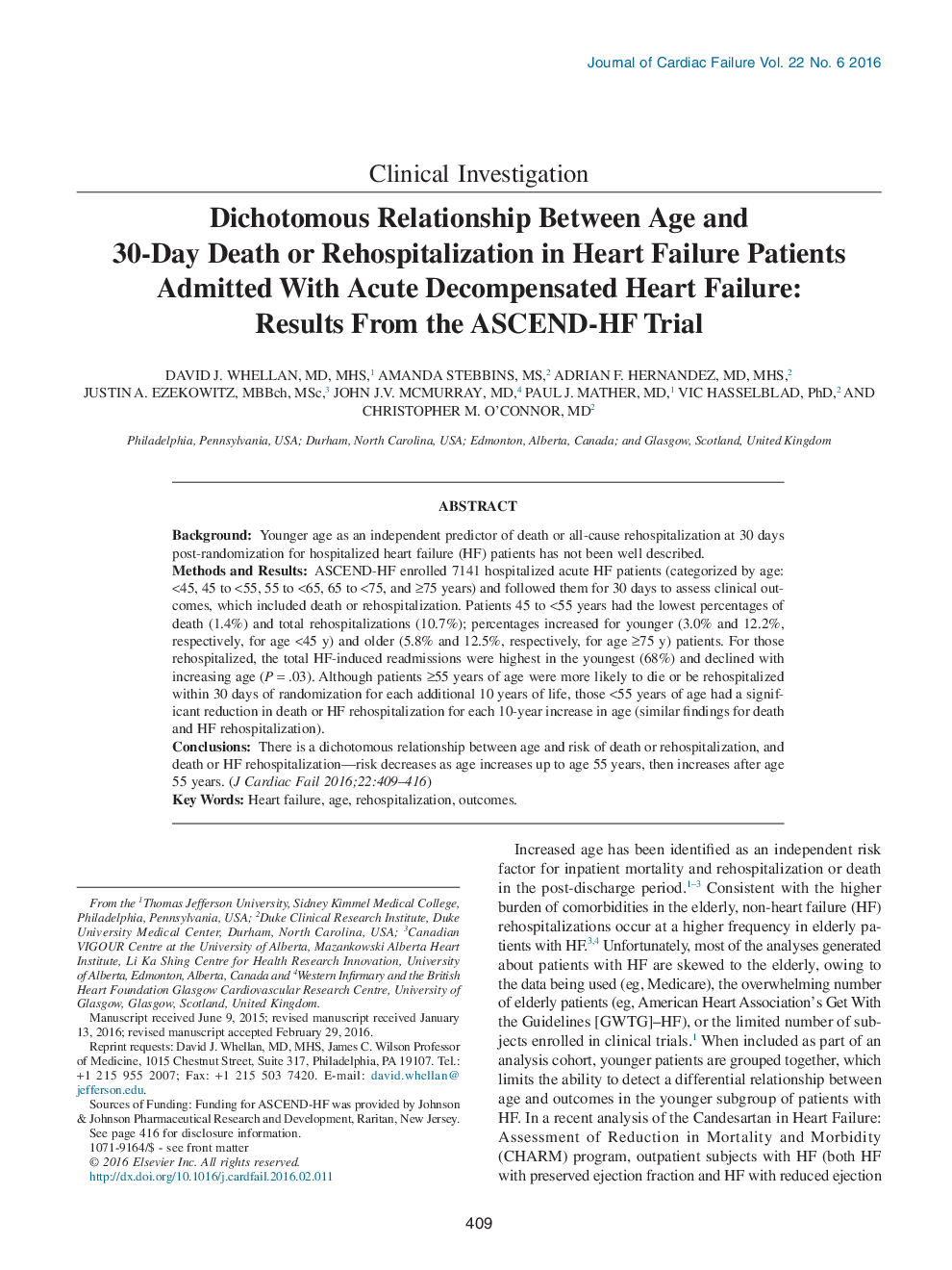| Article ID | Journal | Published Year | Pages | File Type |
|---|---|---|---|---|
| 2958272 | Journal of Cardiac Failure | 2016 | 8 Pages |
•Most analyses about HF patients are skewed to the elderly.•ASCEND-HF provided the chance to examine a broad age group of HF patients.•Death and rehospitalization risk decreases as age increases up to 55 years.•Death and rehospitalization risk increases after age 55.•Different interventions may be needed in different age groups to reduce risk.
BackgroundYounger age as an independent predictor of death or all-cause rehospitalization at 30 days post-randomization for hospitalized heart failure (HF) patients has not been well described.Methods and ResultsASCEND-HF enrolled 7141 hospitalized acute HF patients (categorized by age: <45, 45 to <55, 55 to <65, 65 to <75, and ≥75 years) and followed them for 30 days to assess clinical outcomes, which included death or rehospitalization. Patients 45 to <55 years had the lowest percentages of death (1.4%) and total rehospitalizations (10.7%); percentages increased for younger (3.0% and 12.2%, respectively, for age <45 y) and older (5.8% and 12.5%, respectively, for age ≥75 y) patients. For those rehospitalized, the total HF-induced readmissions were highest in the youngest (68%) and declined with increasing age (P = .03). Although patients ≥55 years of age were more likely to die or be rehospitalized within 30 days of randomization for each additional 10 years of life, those <55 years of age had a significant reduction in death or HF rehospitalization for each 10-year increase in age (similar findings for death and HF rehospitalization).ConclusionsThere is a dichotomous relationship between age and risk of death or rehospitalization, and death or HF rehospitalization—risk decreases as age increases up to age 55 years, then increases after age 55 years.
